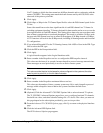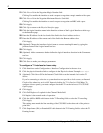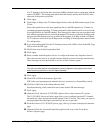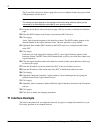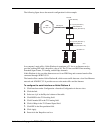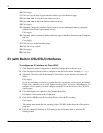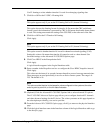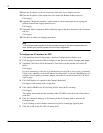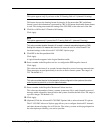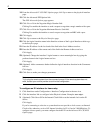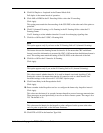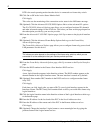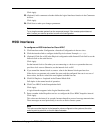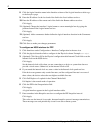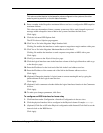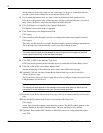
Nokia Network Voyager for IPSO 4.0 Reference Guide 99
Note
This option appears only if you have set the E1 Framing field to E1 (channel 0 framing).
This button chooses the framing format for timeslot-0. On means that CRC-multiframe
format is used; the information is protected by CRC-4. Off means that double-frame format
is used. This setting must match the setting of the CSU/DSU at the other end of the link.
8. Click On or Off for the E1 Timeslot-16 Framing.
Click Apply.
Note
This option appears only if you set the E1 Framing field to E1 (channel 0 framing).
This value controls whether timeslot-16 is used in channel associated signaling (CAS).
Setting this value to On means
that timeslot-16 cannot be used as a data channel. See
fractional settings on the Advanced E1 CSU/DSU Options page.
9. Click PPP in the Encapsulation field.
Click Apply.
A logical interface appears in the Logical Interfaces table.
10. Enter a number in the Keepalive text box to configure the PPP keepalive interval.
Click Apply.
This value sets the interval, in seconds, between keepalive protocol message transmissions.
These messages are used periodically to test for an active remote system. The range is 0-
255. The default is 5.
Note
This value must be identical to the keepalive value configured on the system at the other
end of a point-to-point link, or the link state fluctuates.
11. Enter a number in the Keepalive Maximum Failures text box.
This value sets the number of times a remote system may fail to send a keepalive protocol
message within a keepalive interval before the systems consider the link down. The range is
a positive integer. The default is 30.
12. Click Apply.
13. (Optional) Click the Advanced E1 CSU/DSU Options link to select advanced E1 options.
The E1 CSU/DSU Advanced Options page allows you to configure fractional E1 channels
and other advanced settings for an E1 device. The values you enter on this page depend on
the subscription provided by your service provider.



